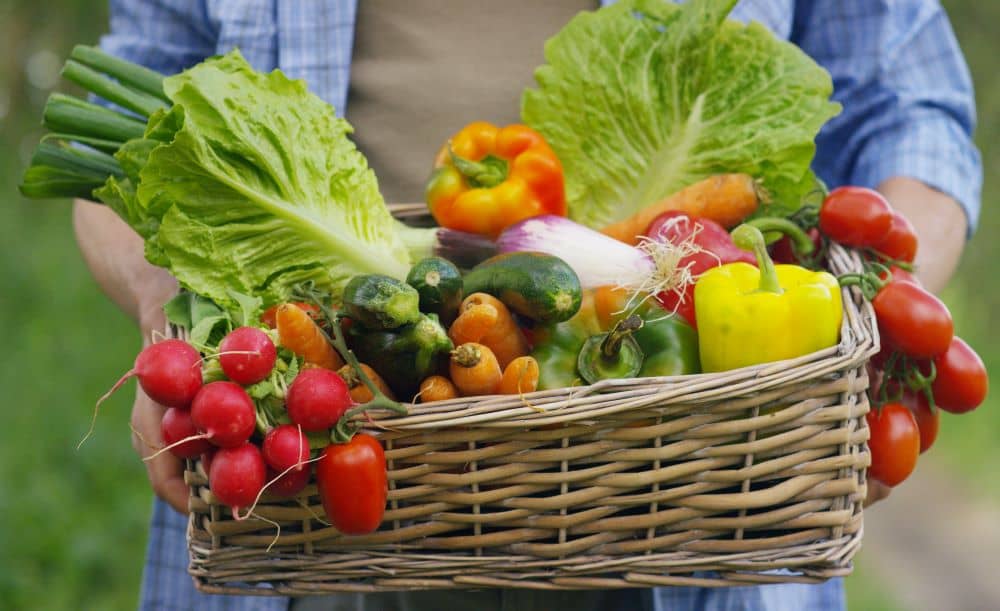Everything You Need To Know About A Plant-Based Diet

The term “plant-based diet” has exploded in popularity in recent years. If you’ve wondered ‘is a plant-based diet healthy?‘, then you’ve come to the right place.
Here, we’ll look at what a plant-based diet is, plant-based diet benefits, and what to eat on a plant-based diet.
What Is a Plant-based Diet?
There is no set definition of what a plant-based diet is. Many individuals focus on a plant-based diet as a lifestyle that focuses on whole, minimally processed foods while minimising the intake of animal-based products.
For others, a plant-based diet means that plant foods, such as fruits, vegetables, whole grains, nuts, and legumes, are the main focus of their diet, but they may, occasionally, consume meat, fish, or dairy products.
A plant-based diet also focuses on healthful whole foods, rather than processed foods.
This is because plant-based diets can vary greatly depending on the extent to which a person includes animal products in their diet.
Overall, the main principles of a plant-based diet include:
- An emphasis on whole foods that are minimally processed
- Limited animal products (or none at all)
- A focus on vegetables, fruits, whole grains, legumes, seeds, and nuts
- Limited refined foods
- Limited added sugars
- Limited white flour or other refined grains
- A focus on food quality and an emphasis on locally sourced, fresh, organic food when possible
Is a Plant-based Diet the Same as Being Vegan or Vegetarian?
While a plant-based diet does share similarities with veganism or vegetarianism such as an emphasis on fruits and vegetables and whole foods, they are not the same.
Vegetarians avoid all meat and poultry in their diets. Vegans avoid any animal products such as meat, dairy, honey, eggs, seafood, and poultry.
A plant-based diet does not eliminate animal products, although they are generally minimized.
Benefits of a Plant-Based Diet
Following a plant-based diet offers many possible benefits, including positive effects on your health and the environment.
Possible plant-based diet benefits include:
- Better weight management thanks to the high content of fibre, water, and complex carbohydrates found in fruits and vegetables
- A possible improvement to your health as plant-based diets have been shown to benefit several health conditions
- It may help slow or prevent cognitive decline
- Can help protect the planet since individuals who follow plant-based diets often have smaller environmental footprints
- Reduction in greenhouse gas emissions, water use, and land use
- Emphasizing foods with local ingredients supports the local economy
- Reduces reliance on factory farming
- Reduces the focus on unsustainable methods of food production
Tips for Getting Started With a Plant-Based Diet
If you want to make the switch to a plant-based diet, start gradually with the following tips:
- Slowly begin reducing your intake of animal products such as dairy and meat
- Increase your intake of fruits and vegetables
- Add more whole foods to your diet
- Aim to eat at least one entirely plant-based meal a day (you can even start by having one plant-based meal a week)
- Swap out one animal product for a plant one (example: add mushrooms to a recipe instead of ground beef)
Plant-Based Diet Food List
There is an impressive variety of fresh fruits, vegetables, whole grains, seeds, nuts, and legumes you can enjoy when following a plant-based diet.
Here are some foods to be sure to include on your plant-based diet food list next time you are at the farmer’s market or grocery store:
- Berries
- Citrus fruits
- Bananas
- Pears
- Peaches
- Plums
- Apricots
- Avocados
- Kale, Spinach, Romaine, and Other Leafy Greens
- Tomatoes
- Broccoli
- Cauliflower
- Apples
- Grapes
- Melons
- Carrots
- Asparagus
- Peppers
- Onions
- Garlic
- Zucchini
- Squash
- Sweet potatoes
- Potatoes
- Beets
- Legumes such as chickpeas, peanuts, lentils, peas, kidney beans, and black beans
- Seeds such as chia seeds, hemp seeds, pumpkin, and flax
- Nuts such as almonds, walnuts, cashews, brazil nuts, and macadamia nuts
- Whole grains such as brown rice, buckwheat, quinoa, barley, and oats
- Mushrooms
- Plant-based milk
- Herbs and seasonings such as rosemary, curry, black pepper, basil, turmeric, salt
- Unsweetened coconut
- Extra-virgin olive oil
How Do I Get Enough Protein on a Plant-Based Diet?
Consuming a variety of plant-based protein options is an easy way to obtain all the necessary amino acids to maintain good health.
Aim to consume a variety of plant-based proteins such as hummus, kidney beans, black beans, and lentils.
And remember, a plant-based diet does not mean avoiding animal products entirely. You can still obtain complete protein by consuming free-range eggs, fatty fish, and other high-quality sources of protein.
Plant-Based Diet Food List: Foods to Avoid or Minimise
When following a plant-based diet, aim to avoid or minimise your consumption of the following foods:
- Fast foods such as burgers, fries, chicken nuggets, hot dogs, and pizza
- Added sugars
- Greasy or deep-fried foods
- Sweets such as sugary cereal, cookies, pastries, and cakes
- Sweetened drinks such as soda or juice
- Refined grains such as white pasta, white rice, white bread, and bagels
- Packaged foods such as frozen dinners, crackers, and chips
- Processed vegan foods (these can be high in preservatives, salt, and additives – read ingredient labels closely)
- Artificial sweeteners such as Equal or Splenda
- Processed animal products like sausage, lunch meats, bacon, and beef jerky
Final Thoughts
A whole-foods, plant-based diet focuses on fresh fruits, vegetables, legumes, and whole grains while minimizing consumption of highly processed foods and animal products.
Plant-based diets have been proven to offer some health benefits including weight management and being better for the planet.
If you would like to learn more about adding more plant-based foods to your diet, please check out our blog or contact our team of nutrition experts today.












